Early Detection Diagnostics
-
Facebook
-
Twitter
-
Linkedin
Early detection and diagnostics play a crucial role in improving cancer outcomes by identifying the disease at its earliest, most treatable stages. Advances in imaging, blood tests, and biomarker analysis enhance accuracy, leading to timely interventions and better survival rates.
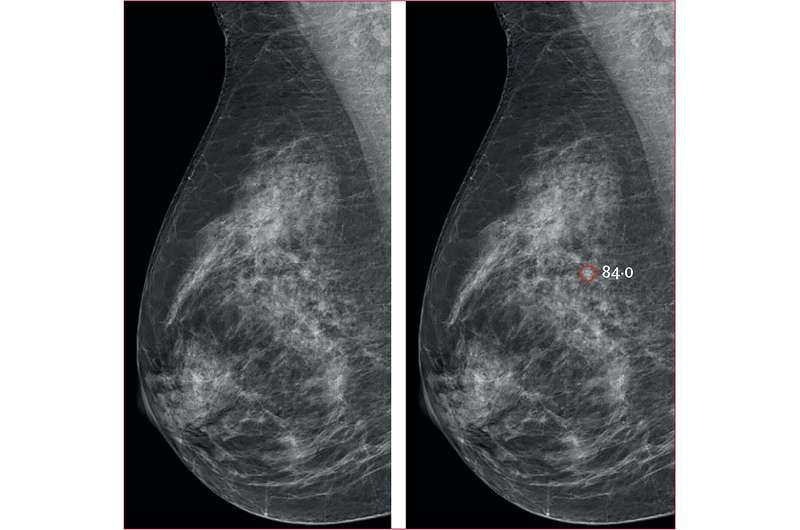
AI-supported breast cancer screening—new results suggest even higher accuracy
New research results now published from Lund University’s MASAI trial are even better than the initial findings from last year: AI-supported breast screening detected 29% more cases of cancer compared with traditional screening. More invasive cancers were also clearly detected at an early stage using AI. Now the final part of the research study will focus on breast cancer missed by screening.

Breakthroughs, Personalization, and the Future of Lymphoma Care
Ann LaCasce, MD, MMSc, delved into some of the most recent advances in the lymphoma space, exploring how these new therapies are offering hope for more durable remissions and better quality of life.

Computer model simplifies immune cell identification for lung cancer treatment
Researchers at the Johns Hopkins Kimmel Cancer Center and Bloomberg-Kimmel Institute for Cancer Immunotherapy have developed a computer model to help scientists identify tumor-fighting immune cells in patients with lung cancer treated with immune checkpoint inhibitors.

Game-Changing AI Unveils Stunning Advances in Lung Disease Detection – DSA
The AI model TD-CNNLSTM-LungNet achieves an exceptional accuracy rate of 96.51% in detecting lung diseases. Combines Convolutional Neural Networks (CNN) and Long Short-Term Memory (LSTM) technologies for superior diagnostics. Capable of accurately differentiating between conditions like pneumonia and COVID-19 using ultrasound images. Enhances radiologists’ decision-making with heat maps and detailed explanations, ensuring transparency. Future plans […]

Kidney Cancer: Revolutionary Changes in Treatment with New-Age Technology – News18
With continued advancements, early detection, and innovative treatments, we are moving closer to a future where kidney cancer is no longer a life-threatening disease but a manageable condition.

TROPION-Lung12 phase 3 trial initiated evaluating Datroway as part of adjuvant regimen for patients with early-stage NSCLC at high risk of relapse
he first patient has been dosed in the TROPION-Lung12 phase 3 trial evaluating the efficacy and safety of adjuvant Datroway (datopotamab deruxtecan) plus rilvegostomig or rilvegostomig monotherapy versus standard of care in patients with stage 1 adenocarcinoma non-small cell lung cancer (NSCLC) after complete surgical resection who are ctDNA-positive or have other high risk pathological features.

Wales and Northern Ireland work together on groundbreaking cancer innovation projects | Welsh Government
Five innovative projects across Wales and Northern Ireland have been awarded a share of £1 million to develop technology to reduce waiting times and improve outcomes for cancer patients.
Read More »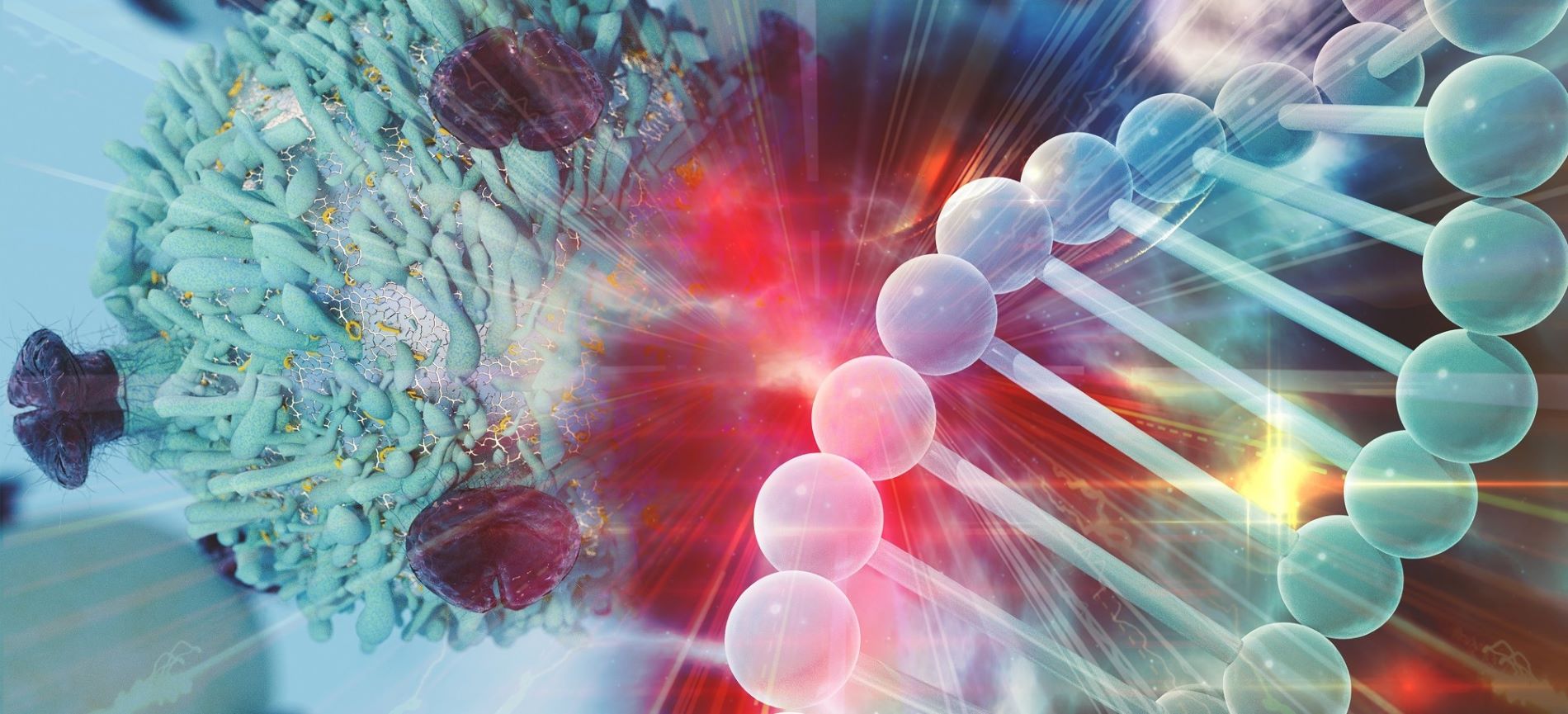
Accelerating Cancer Treatment with Precision Medicine & NGS
Asia accounts for nearly half of global cancer cases, making it a major health concern. Recognising the promise of precision oncology, governments across the region have initiated efforts to drive advancements in this space. Let’s take a closer look at the progress being made in precision oncology in the Asia Pacific region.

AI maps molecular interaction that could improve cancer research
A new study from Oregon Health & Science University has uncovered how small molecules within bacteria interact with proteins, revealing a network of molecular connections that could improve drug discovery and cancer research.
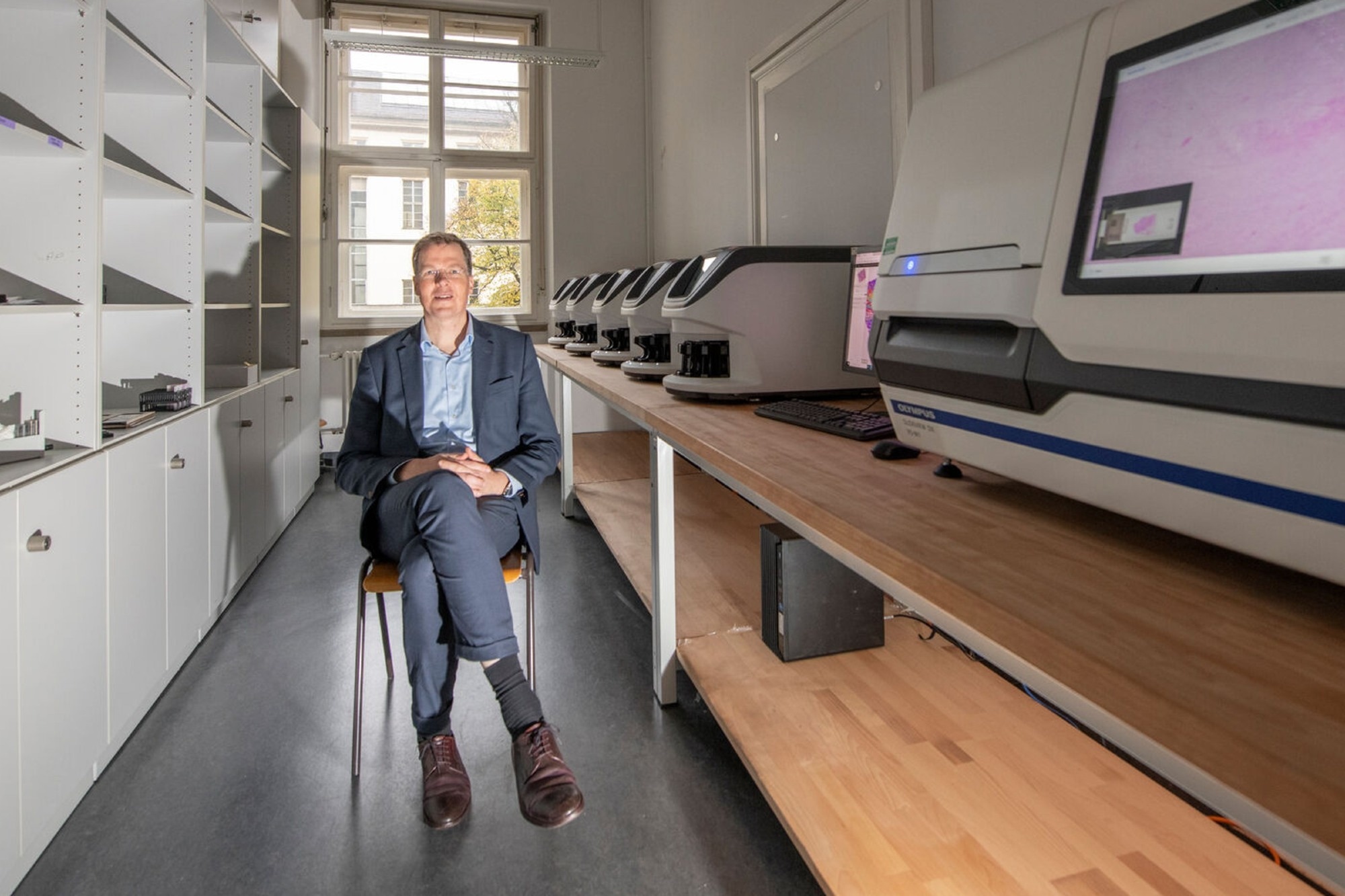
AI Tailors Cancer Treatment to Individual Patients
A novel AI tool from BIFOLD and partner institutions deciphers complex cancer interrelationships, enhancing personalized medicine and clinical decision-making.

Biomarker predicts KRASG12C inhibitor success in lung cancer treatment
A new study from Moffitt Cancer Center could help doctors predict how well patients with a specific type of lung cancer will respond to new therapies. The research, published in Clinical Cancer Research, found that measuring the interaction between two proteins, RAS and RAF, could provide valuable insights into the effectiveness of treatments for patients with KRASG12C-mutant non-small cell lung cancer, a type of lung cancer known for being particularly difficult to treat.

Dwyane Wade Reveals He Had Part Of Kidney Removed As Result Of Cancerous Tumor
Former NBA star Dwyane Wade revealed on his podcast that he had to have part of his kidney removed as the result of a tumor.

Michael Strahan speaks on ‘nightmare’ watching daughter battle cancer
Michael Strahan has described his daughter’s cancer diagnosis as ‘every parent’s worst nightmare’ as he discussed her recovery from the disease.

Restaurant critic Giles Coren reveals he has prostate cancer
Award-winning food and drink writer says he only asked for test thanks to Stephen Fry and Chris Hoy raising awareness
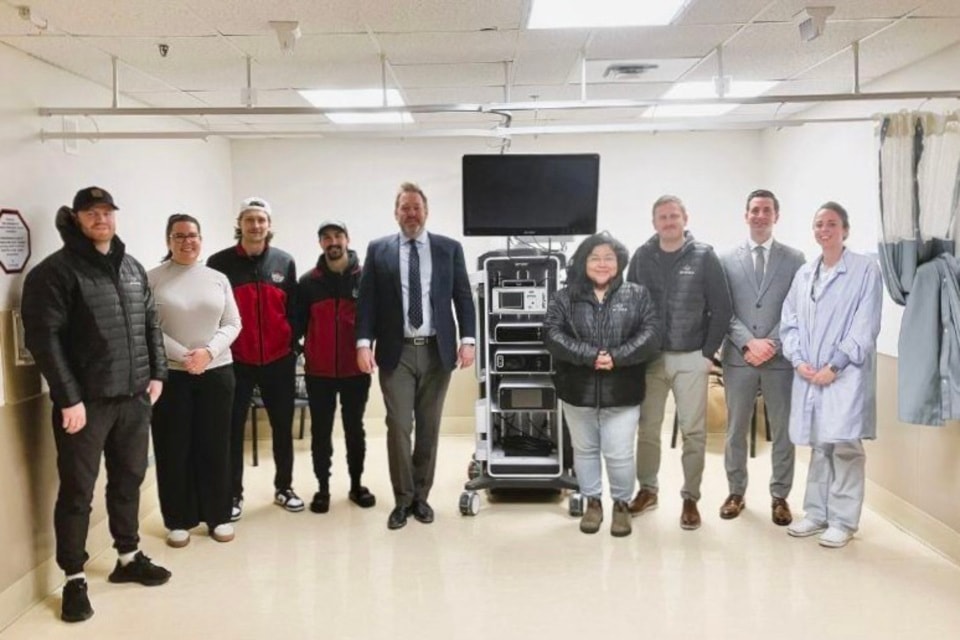
Moffitt Cancer Center Announces New Proton Therapy Treatment
Moffitt Cancer Center has introduced a new proton therapy treatment, offering advanced options for cancer patients.
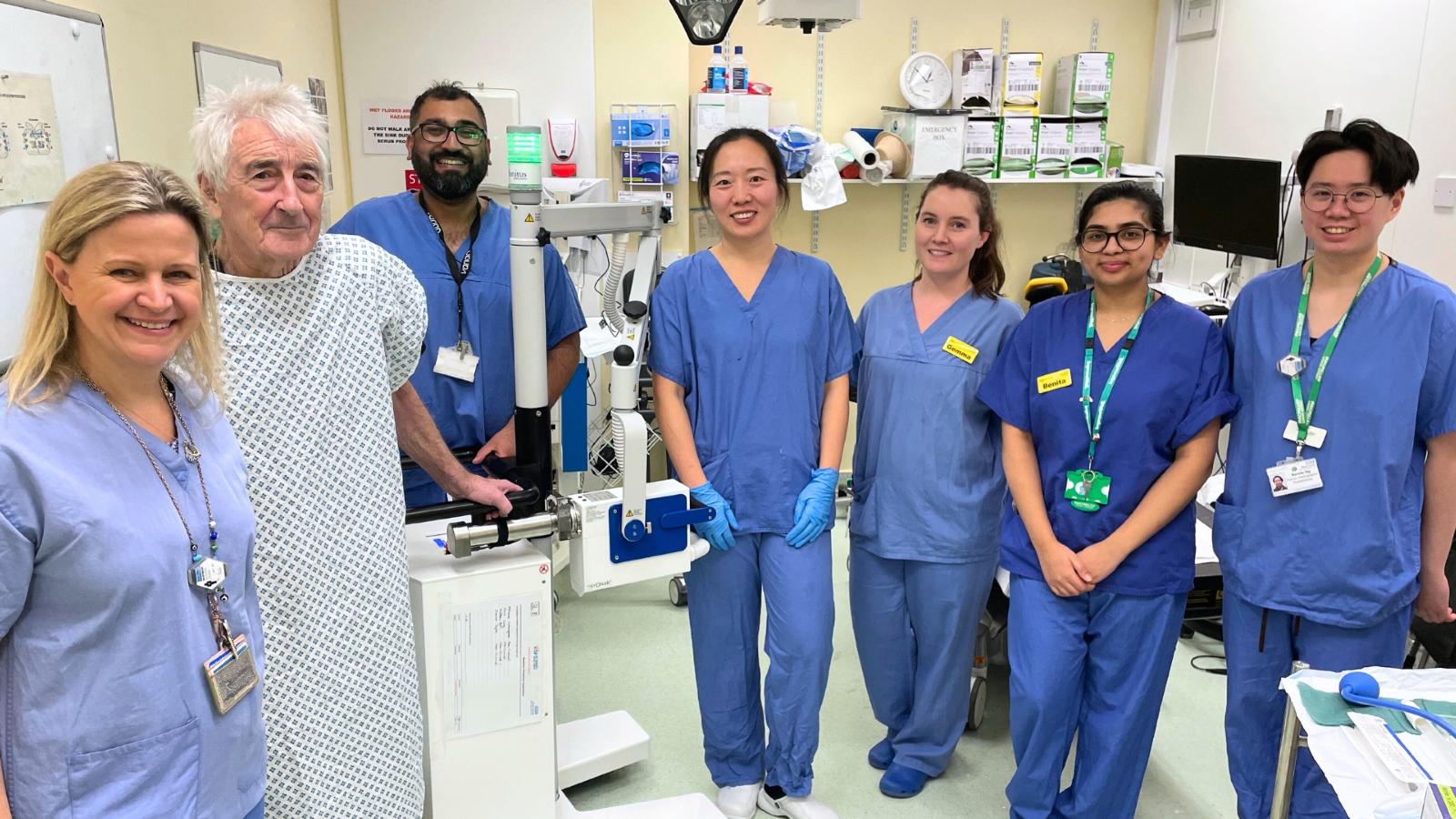
Gene discovery revolutionizes the detection and treatment of prostate cancer
A recent gene discovery has the potential to revolutionize how prostate cancer is detected and treated, offering new hope for patients.

AI-powered breast screening helps women detect breast cancer early
A casual stroll down San Francisco’s Union Street in early January led 38-year-old Jenna Williams to a life-saving discovery.
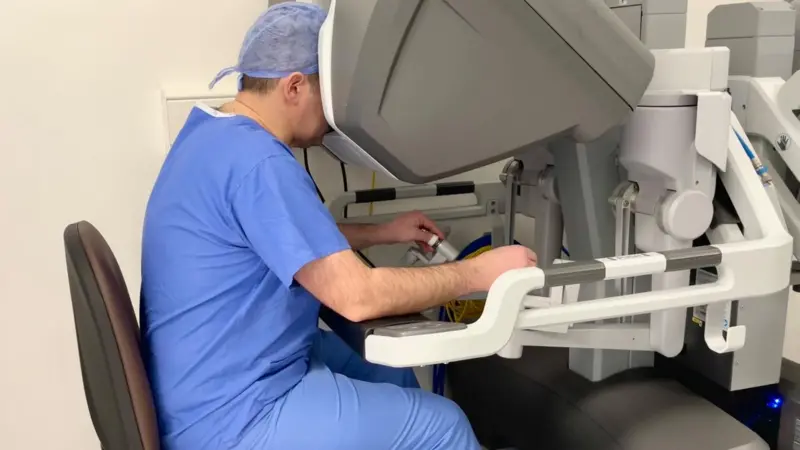
Can robots like Roxy revolutionise cancer surgery?
n operating theatre D at Glasgow’s Royal Infirmary, gynaecological oncologist Dr Kevin Burton is directing four arms of a robot, affectionately named Roxy.
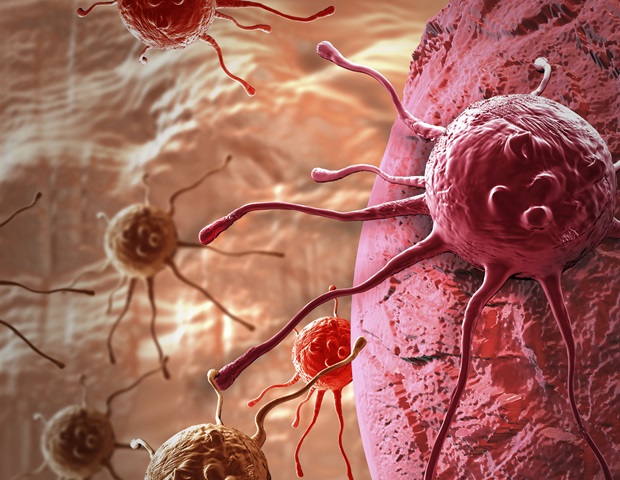
New research shines light on position-specific hallmarks of cancer
A team led by the Cancer Immunogenomics group at the Josep Carreras Leukaemia Research Institute, the Computational Biology group at the Barcelona Supercomputing Center and the Germans Trias i Pujol Research Institute shows, for the first time, that within a tumor, the expression of the different hallmarks of cancer is not cell-specific, but rather position-specific.

MPS2 test validated for detection of high-grade prostate cancer in non-DRE urine
“MPS2 could potentially improve the health of our patients by avoiding overdiagnosis and overtreatment and allowing us to focus on those who are most likely to have aggressive cancers," says Ganesh S. Palapattu, MD, FACS.
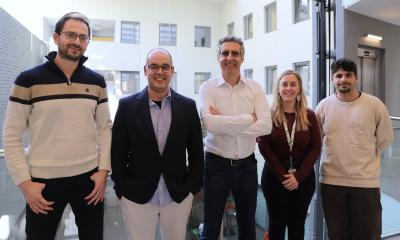
Researchers use “hallmarks of cancer” to understand tumour growth
A team led by the Cancer Immunogenomics group at the Josep Carreras Leukaemia Research Institute, the Computational Biology group at the Barcelona Supercomputing Center and the Germans Trias i Pujol Research Institute shows, for the first time, that within a tumour, the expression of the different hallmarks of cancer is not cell-specific, but rather position-specific.

World Cancer Day 2025: Progress in Awareness and Treatment – The Open News
World Cancer Day, an annual global event aimed at increasing awareness of cancer, advancing education, and spurring action to eradicate the illness, is celebrated on February 4th. As World Cancer Day 2025 approaches, it’s a chance to acknowledge the enormous progress that has been made in cancer awareness, early detection, and treatment while also acknowledging […]

Research Spotlight: Advances in Pancreatic Cancer Research and Key Insights from ASCO GI 2025
PanCAN Chief Scientific & Medical Officer Dr. Anna Berkenblit outlines the latest advances in pancreatic cancer and offers key insights from ASCO GI 2025.

Eight ways to reduce your risk of bowel cancer
Around half of all bowel cancers could be prevented by having a healthier lifestyle






